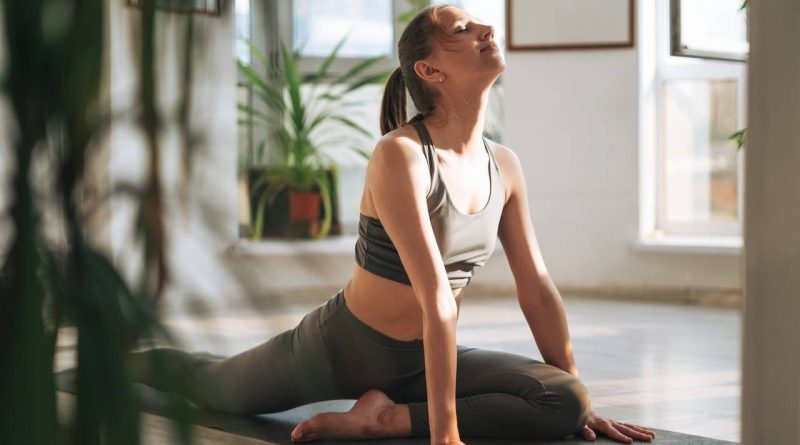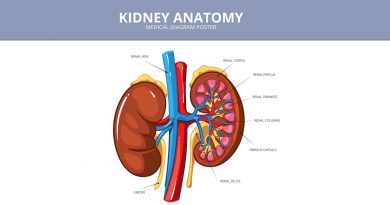How does Yin yoga promote relaxation and better sleep?
Relaxation is key to a peaceful mind and restful night’s sleep. In the practice of Yin yoga, slow and gentle movements combined with deep breathing help calm the nervous system and release tension in the body, making it easier for one to unwind and prepare for a good night’s rest. By holding poses for an extended period, one can tap into a sense of stillness and presence, leading to improved relaxation and ultimately, better sleep. Discover how Yin yoga promote relaxation and better sleep can enhance your relaxation and sleep quality.
The Science of Relaxation
Your journey to relaxation and better sleep begins with understanding how Yin yoga affects your body on a scientific level. By delving into the intricate mechanisms of the parasympathetic nervous system, you can uncover the reasons behind the profound sense of calm that Yin yoga cultivates.
The Parasympathetic Nervous System
One key player in promoting relaxation is the parasympathetic nervous system, often referred to as the body’s “rest and digest” response. When activated, this system works to slow down heart rate, aid in digestion, and promote overall relaxation. Yin yoga, with its emphasis on long, passive holds and deep breathing, triggers the parasympathetic nervous system, helping to counteract the stress response of the sympathetic nervous system.
The Role of Yin Yoga in Activating Relaxation
Activating the parasympathetic nervous system through Yin yoga is crucial for achieving deep relaxation and better sleep. The slow, meditative nature of Yin poses signals to the body that it is safe to release tension and let go of stress. This therapeutic practice encourages relaxation not only in the muscles but also in the mind, allowing for a more profound sense of calm.
For instance, holding a gentle forward fold for several minutes in Yin yoga can stimulate the parasympathetic nervous system and activate the body’s relaxation response. This leads to a decrease in cortisol levels, lower heart rate, and a tranquil state of being that promotes restful sleep.
The Connection Between Yin Yoga and Sleep
One of the key ways in which Yin yoga enhances sleep is by affecting melatonin levels, the hormone responsible for regulating sleep-wake cycles.
Affects Yin Yoga Affects Melatonin Levels
Yin yoga can help regulate melatonin levels in the body by reducing stress and promoting relaxation. This slow-paced style of yoga involves holding gentle poses for an extended period, which can activate the parasympathetic nervous system and reduce cortisol levels. By lowering stress and anxiety, Yin yoga creates an ideal environment for the body to naturally produce melatonin, leading to improved sleep quality.
Yoga The Impact of Yin Yoga on Sleep Quality
In addition to influencing melatonin levels, Yin yoga can also directly impact sleep quality by promoting a state of relaxation and calm before bedtime. By focusing on deep breathing and mindfulness during the practice, individuals can release tension and quiet the mind, making it easier to fall asleep and stay asleep throughout the night. This sense of inner peace and tranquility cultivated during Yin yoga can carry over into bedtime routines, setting the stage for a restful night’s sleep.
The Physiological Effects of Yin Yoga
Clearly, Yin yoga has a profound impact on the body’s physiology, promoting relaxation and better sleep through various mechanisms.
Reducing Inflammation and Stress Hormones
Physiologically, Yin yoga helps reduce inflammation in the body by stimulating the parasympathetic nervous system, also known as the rest and digest system. When the body is in a state of deep relaxation during Yin yoga poses, cortisol, the stress hormone, decreases, leading to a reduction in inflammation. This decrease in inflammation not only helps the body recover from physical stress but also calms the mind, promoting a sense of tranquility and well-being.
Increasing Oxygenation and Relaxation
Increasing oxygenation is another crucial physiological effect of Yin yoga. The deep, slow breathing techniques practiced in Yin yoga help improve oxygen circulation throughout the body, nourishing cells and tissues. This increased oxygen flow not only promotes relaxation but also enhances overall well-being. Oxygen is vital for the body’s functions, and better oxygenation leads to improved energy levels and mental clarity.
Plus, the extended hold times in Yin yoga poses help release tension in the muscles, allowing for better blood flow and oxygen distribution. As the body relaxes into the poses, tension dissipates, and the mind follows suit, creating a harmonious balance between body and mind.
The Psychological Benefits of Yin Yoga
Reducing Anxiety and Depression
Depression and anxiety are common in today’s fast-paced society, affecting many individuals. Yin yoga provides a soothing and calming practice that can help alleviate symptoms of these mental health conditions. The slow and gentle nature of Yin yoga encourages practitioners to focus on their breath, which can help calm the mind and reduce stress levels. The long holds in poses also allow for deep relaxation, releasing tension and promoting a sense of inner peace.
Promoting Mindfulness and Self-Awareness
Mindfulness is a key component of Yin yoga practice. By holding poses for an extended period, practitioners are encouraged to stay present and fully experience the sensations in their bodies. This focus on the present moment helps individuals let go of worries about the past or future, promoting a sense of mindfulness and self-awareness. Through regular practice, individuals can develop a better understanding of themselves, their emotions, and thought patterns, leading to improved overall well-being.
As individuals deepen their practice of Yin yoga, they may notice an increased ability to observe their thoughts and emotions without judgment. This mindfulness can then be carried off the mat and into daily life, allowing for more conscious decision-making and a greater sense of inner balance.
The Role of Breathing in Yin Yoga
The Importance of Deep, Conscious Breathing
Keep in mind that breathing is at the core of the Yin yoga practice. Deep, conscious breathing helps to activate the body’s relaxation response, calming the nervous system and quieting the mind. In Yin yoga, practitioners are encouraged to focus on their breath as they move through the poses, allowing it to guide them deeper into a state of relaxation.
How Breathing Techniques Enhance Relaxation
An integral part of Yin yoga is the incorporation of various breathing techniques that enhance relaxation. By using specific breathing patterns such as deep belly breathing or extended exhalations, practitioners can release tension and stress held within the body. This focused breathing not only oxygenates the muscles but also helps to clear the mind and promote a sense of inner peace.
Deep, slow breathing in Yin yoga not only serves to calm the mind but also allows practitioners to connect more deeply with their bodies. By syncing breath with movement and holding poses for an extended period, individuals can cultivate a sense of mindfulness and presence that carries over into their daily lives, promoting relaxation and better sleep.
Creating a Yin Yoga Practice for Better Sleep
Now let’s research into how you can tailor a Yin yoga practice specifically to improve your sleep quality. One beneficial approach is to establish a pre-bedtime routine that signals to your body and mind that it’s time to wind down and prepare for rest. Incorporating Yin yoga poses into this routine can help relax tense muscles and calm the nervous system, setting the stage for a deep and restful slumber.
Tips for a Pre-Bedtime Yin Yoga Routine
- Choose gentle Yin yoga poses that focus on deep stretching and relaxation.
- Practice mindful breathing techniques, such as diaphragmatic breathing, to promote relaxation.
- Hold each pose for at least 3-5 minutes to allow the body to fully release tension.
After engaging in a pre-bedtime Yin yoga routine, one can expect to feel more at ease, both physically and mentally. It prepares the body for a rejuvenating night’s sleep and supports overall well-being.
How to Incorporate Yin Yoga into Your Daily Life
Your daily routine can benefit greatly from the inclusion of Yin yoga practices. By dedicating just a few minutes each day to gentle stretching and mindfulness, you can cultivate a sense of tranquility and balance that carries over into your daily activities.
Plus, weaving Yin yoga into your daily life can help improve flexibility, reduce stress levels, and promote a greater sense of inner peace. Making it a daily habit allows you to experience the full spectrum of benefits that Yin yoga has to offer, enhancing not only your sleep quality but your overall quality of life.
Summing up
Hence, Yin yoga can be a powerful tool in promoting relaxation and better sleep. Its gentle, meditative approach allows practitioners to tap into their parasympathetic nervous system, leading to a state of calm and relaxation. The slow, deep stretches also help release tension from the body, making it easier to unwind and prepare for a restful night’s sleep.




